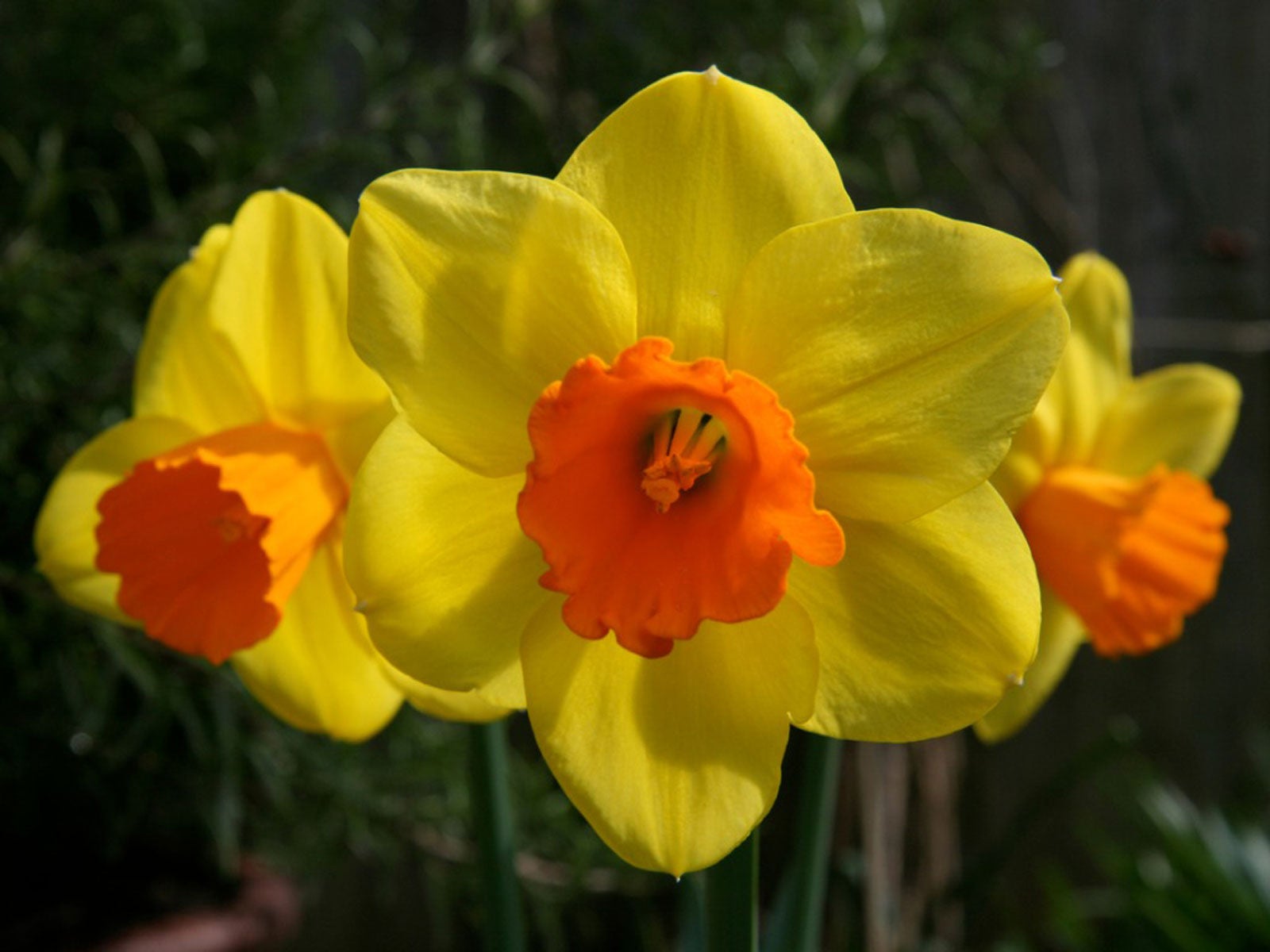Dwarf Narcissus Care: Popular Mini Daffodil Varieties To Try


Dwarf daffodil flowers, also known as miniature narcissus, look just like their full-size counterparts. Perfect for rock gardens, naturalized areas, and borders, these bulbs will give you flowers for years if you provide the right conditions and care.
What is Miniature Narcissus?
Miniature narcissus is just another name for a dwarf daffodil variety. Like regular-sized daffodils, they grow from fall planted bulbs and bloom in spring. The size of a dwarf daffodil depends on the variety, but generally they grow 4 to 6 inches (10-15 cm.) tall with flowers that are just one and a half inches (4 cm.).
Some mini daffodil varieties to try include:
- Baby Moon: This variety produces cheerful yellow flowers that look like a classic daffodil.
- White Petticoat: The unique flowers on this variety are bell shaped with a star of thin white petals at the base.
- Hawera: Hawera is an heirloom variety with yellow flowers that hang from the stems like pendants.
- Tete Boucle: For a miniature, double bloom you can’t beat this deep yellow variety.
- Pipit: Pipit will give you multiple, pale yellow, delicate blooms per stem.
- Jetfire: Truly unique, this small daffodil produces yellow flowers with a corona that may be orange to red.
- Minnow: Minnow is a white daffodil with a bright yellow corona.
Dwarf Narcissus Care
These diminutive varieties of the popular daffodil require essentially the same care and conditions. They require well drained soil that is fertile. Amend your soil if necessary to drain and include organic matter.
Plant the bulbs in fall for spring blooms. During the growing season, water your mini daffodils only if they are not getting an inch (2.5 cm.) of rainwater per week. Use a low-nitrogen fertilizer on daffodils only after they are done flowering.
As flowers on each plant begin to wilt, deadhead them but leave the foliage in place. The stem and leaves must be left intact so the plant can continue to photosynthesize and collect nutrients. This allows them to come back the next year. After about six weeks the leaves and stem will start to die back, at which point you can remove them.
As with other types of bulbs, your dwarf narcissus will benefit from occasional divisions. Every few years, dig up bulbs after flowering. Separate a few and replant in other areas.
Gardening tips, videos, info and more delivered right to your inbox!
Sign up for the Gardening Know How newsletter today and receive a free copy of our e-book "How to Grow Delicious Tomatoes".

Mary Ellen Ellis has been gardening for over 20 years. With degrees in Chemistry and Biology, Mary Ellen's specialties are flowers, native plants, and herbs.
-
 Looking For Plants To Give You The Soft And Fuzzies? Try These 5 Fuzzy Leaf Plant Options
Looking For Plants To Give You The Soft And Fuzzies? Try These 5 Fuzzy Leaf Plant OptionsLovers of texture, drama, silver foliage and tactile plants will adore these special sensory garden additions. These fuzzy leaf plant options will leave you all aglow
By Susan Albert
-
 Get Ready For A Summer Of Hummers! Grow These Full Sun Hummingbird Plants and Flowers
Get Ready For A Summer Of Hummers! Grow These Full Sun Hummingbird Plants and FlowersIf you’re lucky enough to enjoy a sunny backyard, make sure you are maxing out on your pollinator opportunities and grow these full sun hummingbird plants and flowers
By Tonya Barnett